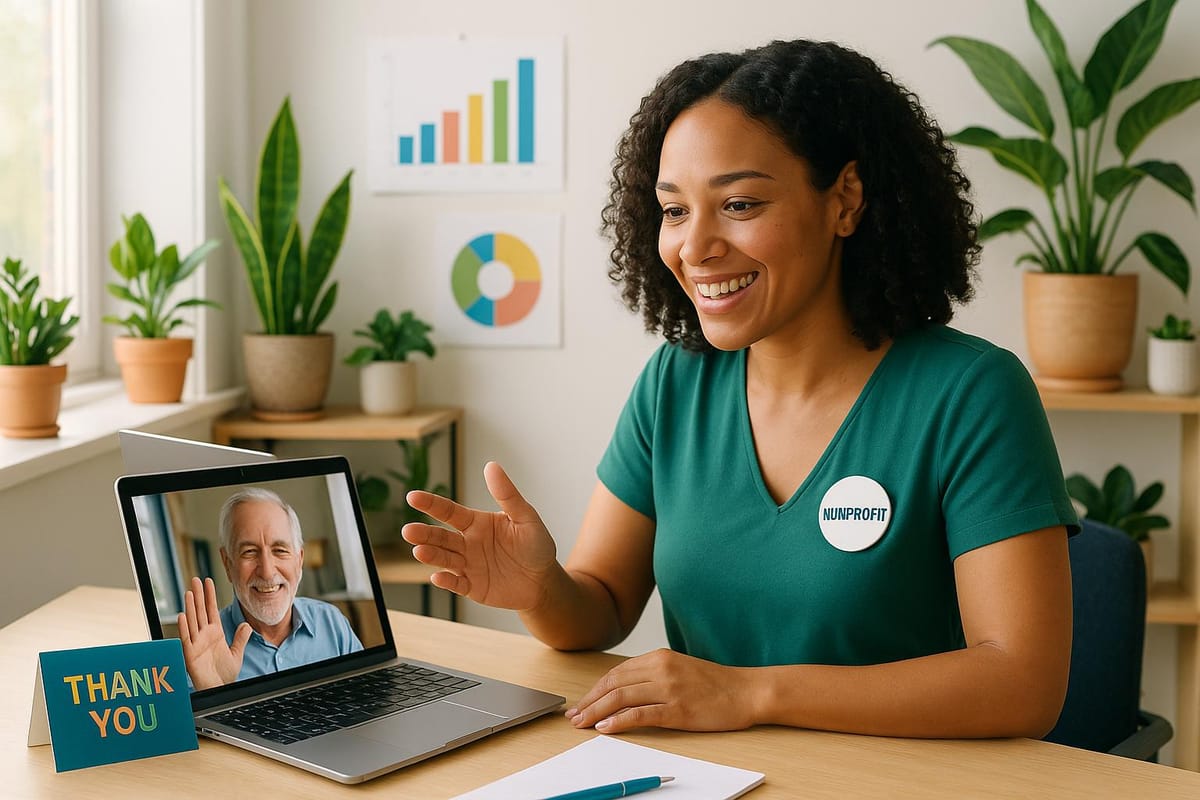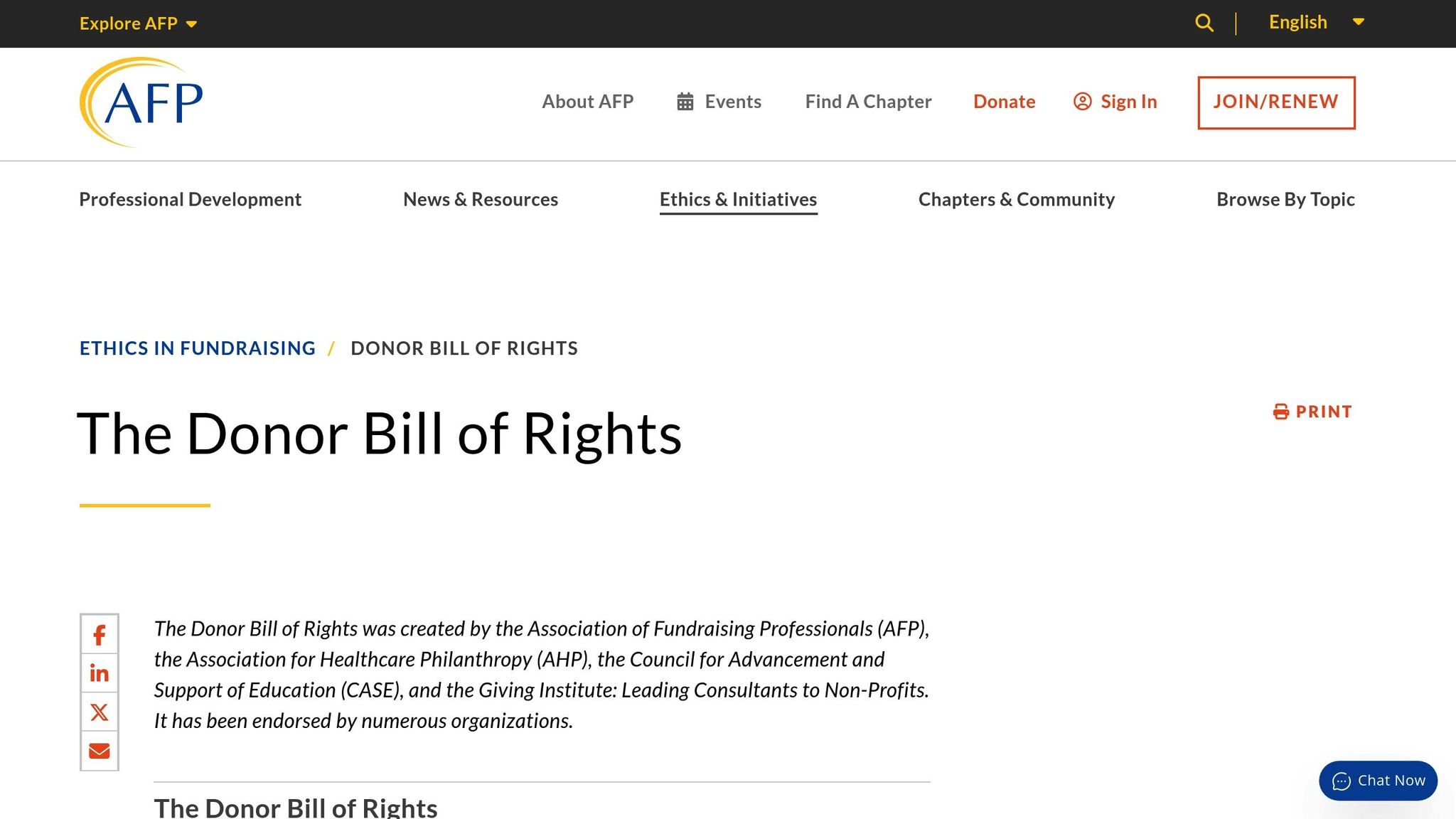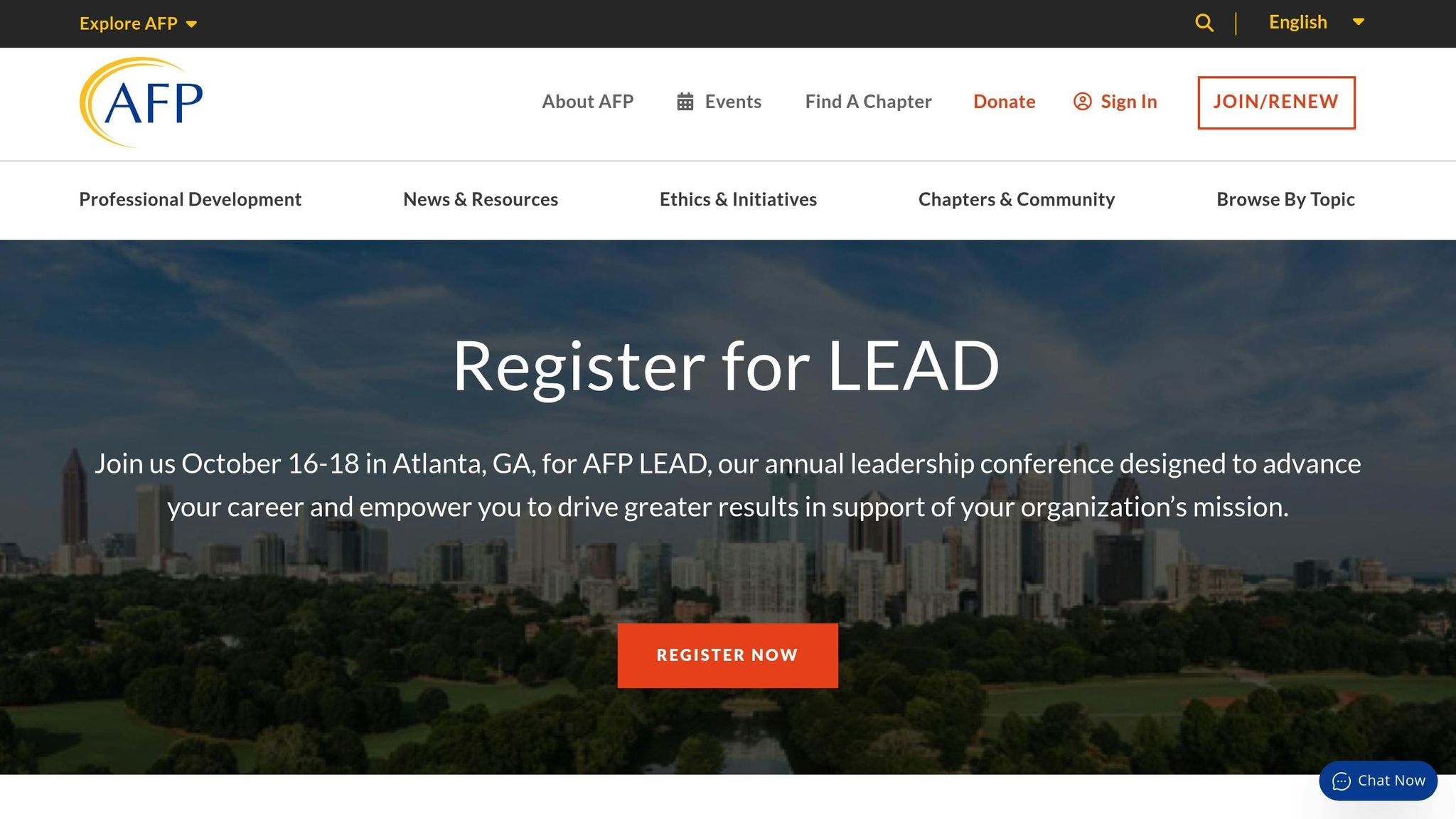How to Build Personalized Donor Relationships
Discover how nonprofits can build meaningful donor relationships through communication, transparency, and strategic fundraising tips.

In the world of nonprofit organizations, fostering personalized donor relationships is not just a best practice - it's essential for sustainability and growth. This principle lies at the heart of the discussion between Wendy Kidd, host of The Nonprofit Nook, and Manuel Mesa, a seasoned philanthropy advisor and president of the Dallas Chapter of the Association of Fundraising Professionals (AFP). Drawing from years of hands-on experience and transformative strategies, Manuel shared actionable insights on building meaningful donor connections, understanding donor rights, and the role of communication in fundraising success.
This article breaks down the key takeaways from their engaging conversation and offers a roadmap for nonprofit professionals to strengthen their donor relationships and drive impactful change.
The Human Element in Fundraising
One of the most compelling themes from the discussion is the importance of viewing donors as more than just financial contributors. Manuel emphasized that donors are human beings with unique stories, values, and aspirations - and understanding these dimensions is crucial to building trust and long-term relationships.
The Power of Personalization
Manuel shared a profound success story about a donor (referred to as "Sam") whose support ultimately transformed a synagogue's capital campaign. Instead of directly requesting a significant financial contribution, Manuel invested time in building a relationship with Sam. Through monthly lunches and meaningful conversations, he gained insight into Sam’s motivations and priorities. By aligning the organization’s needs with Sam’s desire for a tangible return on investment, Manuel secured over $1.5 million in donations - a result that stemmed from trust and personalization.
This story highlights a critical lesson for nonprofit professionals: relationship-building precedes fundraising success. Getting to know donors on a personal level not only creates genuine connections but also empowers you to tailor your requests in a way that resonates with their interests.
Donors as Partners, Not Piggy Banks
Another important takeaway was Manuel’s reminder to view donors as partners in the mission, not just sources of funding. By respecting their contributions and keeping them informed, nonprofits can foster stronger ties. Treating donors as partners means engaging them in decision-making, inviting their input, and ensuring their contributions align with their values.
Manuel’s experience with Sam also underscored how nonprofit professionals can enrich their own lives through these relationships. "I feel I got more from the relationship than Sam did", Manuel reflected, showcasing the depth and mutual value of this donor-centered approach.
The Donor Bill of Rights: A Guide for Transparency

Transparency is the foundation of trust in donor relationships. Manuel introduced the Donor Bill of Rights, a framework designed to ensure donors feel confident about where their money is going and how it’s being used. This initiative, spearheaded by AFP and its partners, outlines key rights such as:
- Understanding how their contributions will be used.
- Knowing their donations are allocated to the intended purpose.
- Receiving acknowledgment and recognition for their support.
Manuel stressed the increasing sophistication of donors, particularly post-COVID. Many now seek detailed insights into nonprofit operations, including the percentage of each dollar spent on the mission versus administrative expenses. Nonprofits that proactively embrace transparency and communicate their financial stewardship are better positioned to gain and maintain donor trust.
Actionable Tip: Display the Donor Bill of Rights
Manuel recommends all nonprofit organizations prominently display the Donor Bill of Rights and encourage donors to inquire about it. This simple step can demonstrate a commitment to accountability and further build credibility.
Communication: The Cornerstone of Fundraising Success
Effective communication is a recurring theme in Manuel and Wendy’s discussion. According to Manuel, the way nonprofits communicate with donors can make or break relationships. Here are some practical strategies he shared:
1. Segment Your Donor Base
Not all donors are the same, so your communication strategy shouldn’t be one-size-fits-all. For example:
- Major donors might prefer personalized updates or one-on-one meetings.
- Monthly donors may appreciate a heartfelt email recognizing their consistent support.
- First-time donors should receive a welcome message that builds excitement and gratitude.
2. Be Transparent About Challenges
Manuel encouraged nonprofits to keep donors informed - even when the news isn’t positive. Being honest about challenges can foster deeper trust and even inspire donors to increase their support during difficult times.
3. Highlight the Value of Operating Expenses
Another critical insight was the importance of communicating the role of operating expenses. Many donors mistakenly undervalue these costs, despite the fact that they fund essential staff and infrastructure. Nonprofits should educate donors about how their contributions to operating expenses directly enable mission-driven work.
4. Leverage Feedback Loops
Create opportunities for donors to share feedback through surveys, conversations, or events. This not only strengthens engagement but also helps nonprofits tailor their strategies to donor preferences.
Building a Donor-Centric Organization
To thrive in fundraising, nonprofits must adopt a donor-centric mindset. This means prioritizing donor needs, recognizing their contributions, and fostering ongoing communication. Manuel emphasized that even small gestures - like a thank-you note or a personal call - can make a significant impact.
The Role of AFP in Supporting Nonprofits

Manuel also highlighted the valuable resources provided by AFP, a global organization dedicated to advancing philanthropy. From educational workshops and networking opportunities to the Donor Bill of Rights, AFP equips nonprofits with the tools needed to succeed in fundraising. Nonprofit leaders can leverage AFP’s global network and local chapters to build their knowledge, connect with peers, and refine their approaches.
Key Takeaways
- Personalization is key: Build genuine relationships with donors by understanding their stories, values, and interests.
- View donors as partners: Treat them as collaborators in your mission, not just financial contributors.
- Embrace transparency: Use the Donor Bill of Rights to build trust and demonstrate accountability.
- Segment communications: Tailor your outreach to different donor groups for maximum impact.
- Highlight operating expenses: Educate donors about the importance of supporting organizational infrastructure.
- Be proactive and honest: Communicate with donors regularly, even when facing challenges.
- Leverage donor networks: Donors can open doors to new opportunities by introducing you to their personal and professional connections.
- Invest in education: Organizations like AFP offer invaluable resources to enhance your fundraising strategies.
Closing Thoughts
Building personalized donor relationships is as much an art as it is a science. It requires empathy, transparency, and a commitment to understanding donors as individuals. By adopting a donor-centric approach, communicating effectively, and leveraging resources like the Donor Bill of Rights, nonprofits can strengthen their fundraising efforts and create lasting partnerships with those who share their vision for change.
Wendy Kidd and Manuel Mesa’s conversation provides a blueprint for nonprofits looking to elevate their impact through meaningful donor engagement. As Manuel noted, fundraising isn’t just about asking for money - it’s about building relationships that benefit everyone involved. For nonprofit professionals, this shift in mindset can transform not only their fundraising outcomes but also the communities they serve.
Source: "The Power of Personalized Donor Relationships with Manuel Mesa" - Boss Level Engaged, YouTube, Aug 26, 2025 - https://www.youtube.com/watch?v=m430U-58Hvg
Use: Embedded for reference. Brief quotes used for commentary/review.

